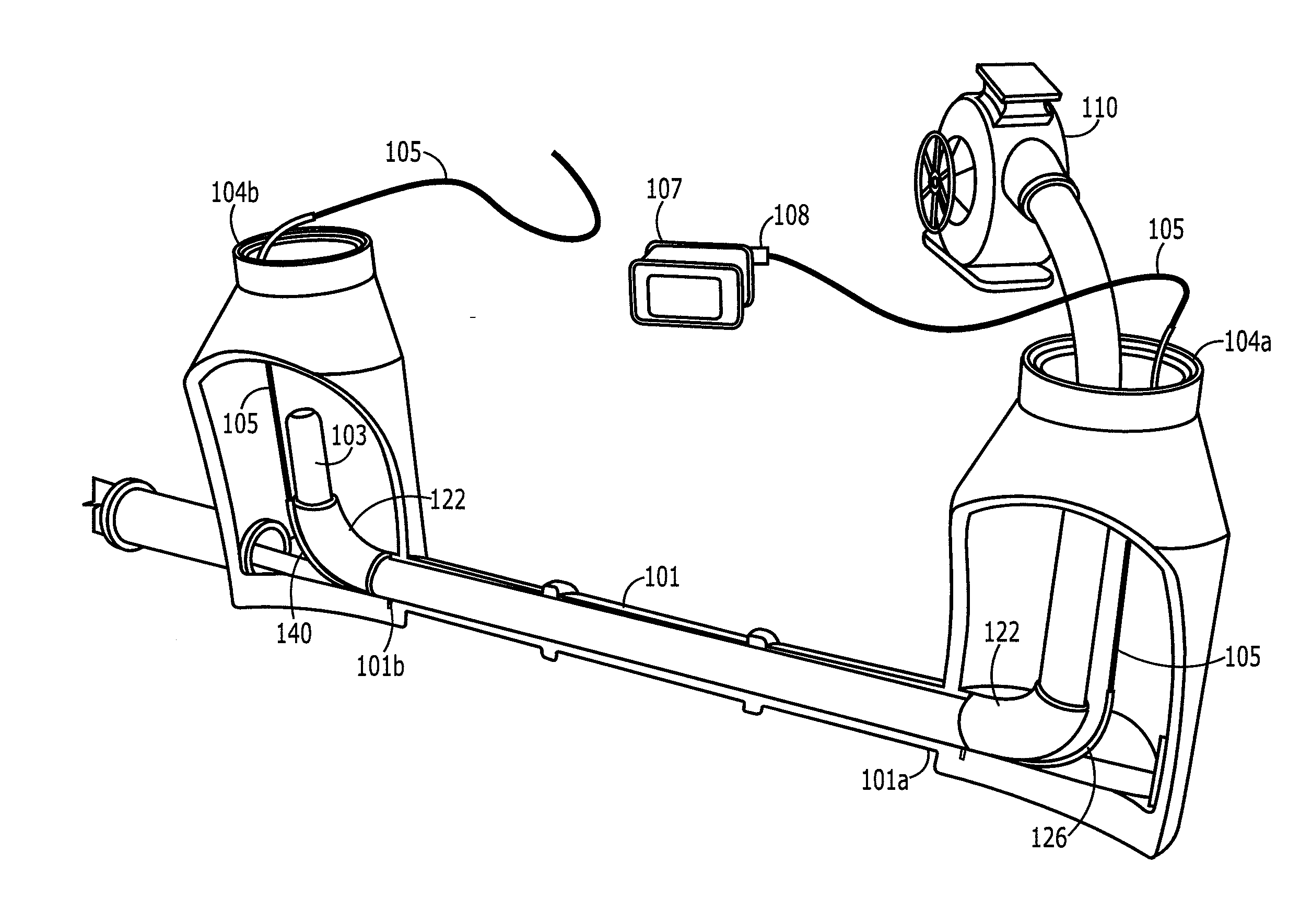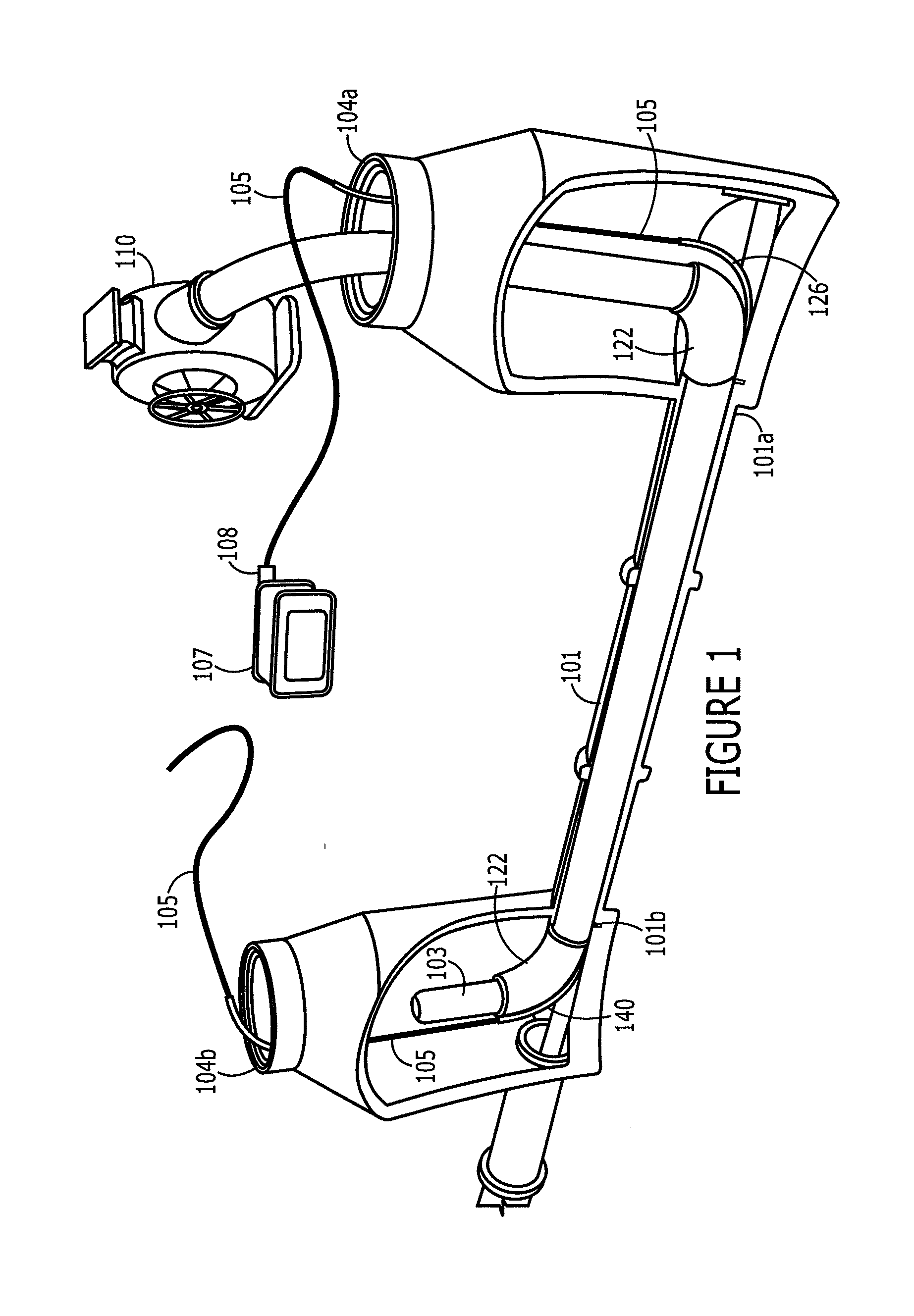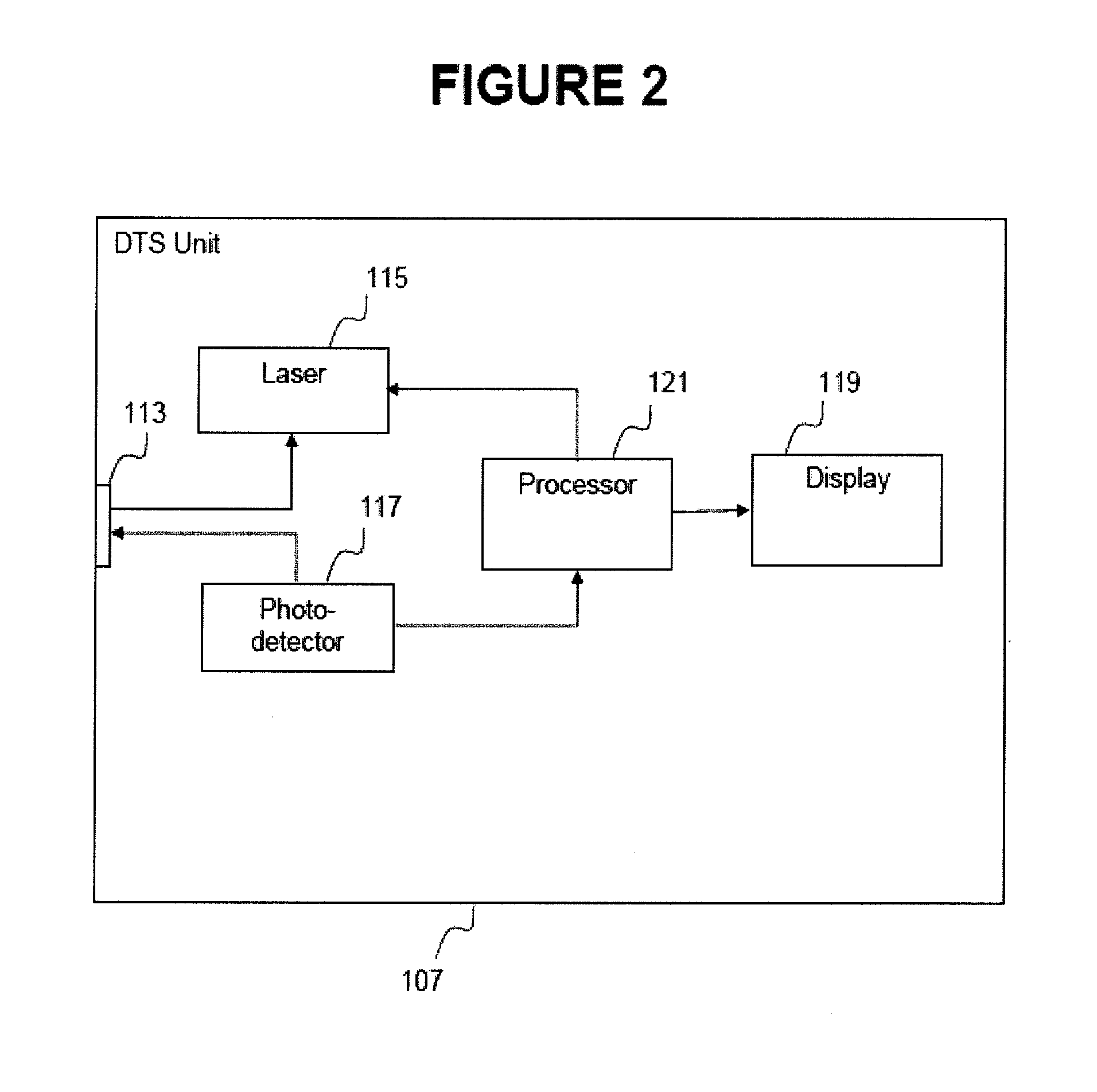Method and apparatus for determining proper curing of pipe liners using distributed temperature sensing
a temperature sensing and temperature sensing technology, applied in the direction of instruments, heat measurement, mechanical control devices, etc., can solve the problems of affecting the operation of the entire lining, affecting the operation of the lining, and requiring replacement or repair. , to achieve the effect of reducing the risk of leaking or failing structurally, reducing the risk of leaking, and reducing the efficiency of lining operation
- Summary
- Abstract
- Description
- Claims
- Application Information
AI Technical Summary
Problems solved by technology
Method used
Image
Examples
Embodiment Construction
[0020]FIG. 1 is a schematic diagram of a pipe segment in the process of being lined according to one embodiment of the present invention and showing the various components involved in the practice of one embodiment of the present invention. FIG. 1 shows the process near an end stage so as to illustrate all of the components involved. Particularly, a segment of pipe 101, such as sewer pipe that is in need of repair, is disposed underground and is accessible only at discrete points adjacent first and second manholes 104a, 104b in the street, e.g., commonly spaced apart approximately 360-400 feet in the United States. Accordingly, a 360-400 foot long sock of cured-in-place pipe liner 103 is provided for lining the pipe 101. Before the liner 103 is placed in the pipe 101, an optical fiber cable 105 is placed in the pipe 101. In one embodiment, the optical fiber cable is longer than the actual pipe segment such that the distal end of the cable extends approximately ten meters or so from ...
PUM
| Property | Measurement | Unit |
|---|---|---|
| pressure | aaaaa | aaaaa |
| pressure | aaaaa | aaaaa |
| temperature | aaaaa | aaaaa |
Abstract
Description
Claims
Application Information
 Login to View More
Login to View More - R&D
- Intellectual Property
- Life Sciences
- Materials
- Tech Scout
- Unparalleled Data Quality
- Higher Quality Content
- 60% Fewer Hallucinations
Browse by: Latest US Patents, China's latest patents, Technical Efficacy Thesaurus, Application Domain, Technology Topic, Popular Technical Reports.
© 2025 PatSnap. All rights reserved.Legal|Privacy policy|Modern Slavery Act Transparency Statement|Sitemap|About US| Contact US: help@patsnap.com



